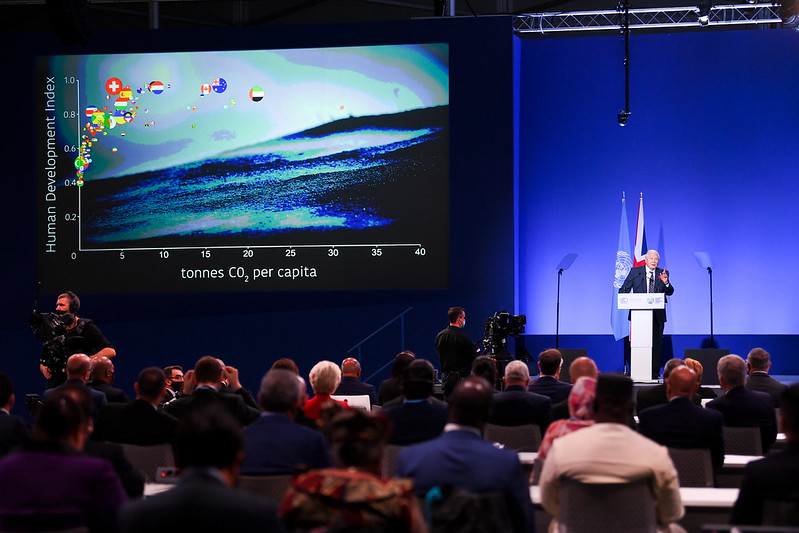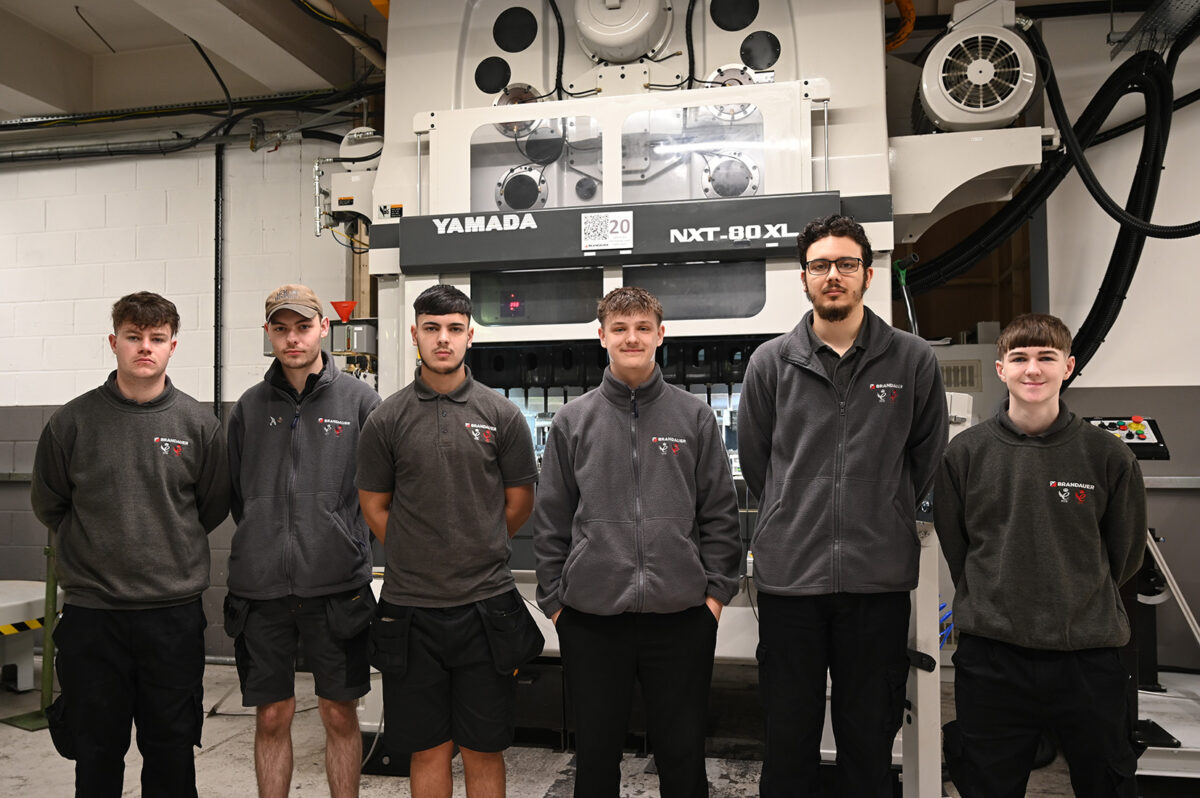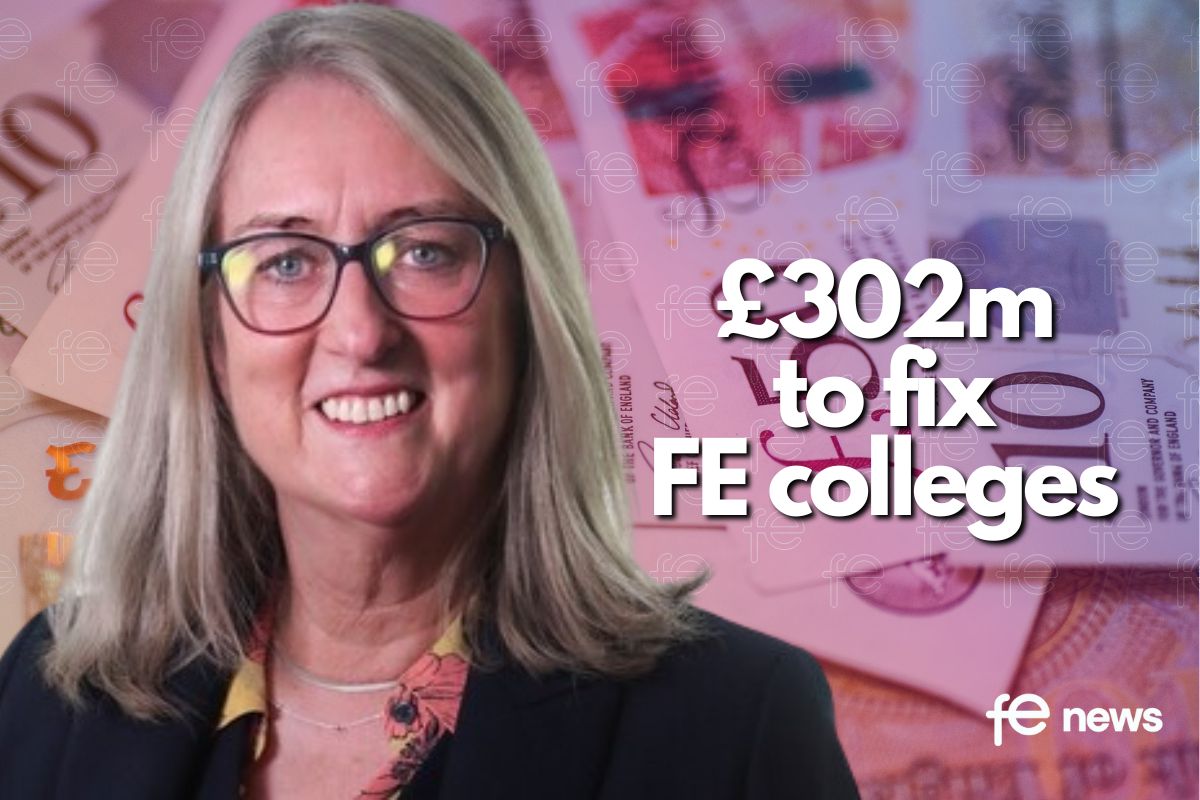Race to Zero: COP26 sees UK businesses lead the world in climate change commitments

#COP26 – Britain’s largest businesses are leading the way in the global transition to net zero emissions, with over half of FTSE100 companies now committed to eliminating their contribution to climate change by 2050.
- Over half of the UK’s largest businesses have committed to eliminate their contribution to carbon emissions by 2050, representing a total market capital of over £1.2 trillion and combined annual turnover of £700 billion
- today’s milestone means pledges have tripled in the past 10 months, cementing British businesses’ position in leading the way in the world’s transition to a low carbon economy
- as the world gathers together at the UN COP26 climate summit, the UK Government is calling on the global private sector to follow the UK’s example and join the UN Race to Zero
As of today, 60 of the UK’s FTSE 100 companies have signed up to the United Nation’s Race to Zero campaign – the largest ever global alliance committed to achieving net zero carbon emissions by 2050 at the latest, backed by independent experts and organisations to ensure everyone in the Race is following through on meeting their targets – signally a strong shift in the UK economy to a greener future.
Accelerating momentum from UK businesses means that pledges have more than quadrupled since November last year, now representing total market capital of over a trillion pounds and combined turnover of £700 billion.
Globally, over 5,200 companies of all sizes have now joined the UN Race to Zero, representing sectors like transport, technology, manufacturing, retail, and finance. Nearly half of these are British businesses, with the UK private sector demonstrating international leadership in global efforts to tackle climate change.
The Race to Zero acts as a kickstart for companies going green, guiding their actions in the transition to net zero and positioning businesses at the forefront of the global race to develop new green technology, kick-start new industries and attract private investment.
Business and Industry Minister Lee Rowley said:
Businesses both large and small, across all sectors of the global economy, have a crucial role to play in both reducing their environmental impact and developing the green technologies that will set us on the path to net zero.
With over 2,500 UK companies joining the Race to Zero, including the majority of our largest firms, the UK is leading the way in showing how going green doesn’t just make sense for the planet – it makes business sense too.
Also announced today, over 2,000 small businesses from across the UK have pledged to reduce their emissions and join the Race to Zero through the Together For Our Planet Business Climate Leaders campaign, which was launched by the Prime Minister earlier this year to help small businesses go green.
As these businesses are demonstrating, taking action to tackle climate change does not need to be at the expense of a growing economy – between 1990 and 2019, the UK’s economy grew by 78% while carbon emissions fell by 44%, the fastest reduction in the G7.
Taking action on climate change will help businesses grow, seize new opportunities, create new jobs, encourage investment and adapt against the challenges of a changing planet, while reducing emissions can lower businesses’ running costs, save them money and attract new customers – ultimately helping them maintain a competitive advantage locally and globally.
The commitments build on the government’s recently published Net Zero Strategy, which outlines measures to transition to a green and sustainable future, helping businesses and consumers to move to clean power, supporting hundreds of thousands of well-paid jobs and leveraging up to £90 billion of private investment by 2030.
As the world gathers at the UN Climate Summit COP26 in Glasgow, the government is calling on business of all sizes – both in the UK and around the world – to take urgent action and demonstrate their climate leadership by signing-up to Race to Zero and setting out clear pathways to get to net zero.
UK Net Zero Business Champion Andrew Griffith said:
As the world seeks bold solutions to combat climate change, we need businesses of all sizes to put the environment at the heart of their operations, making tangible climate commitments that helps chart our path to net zero emissions by 2050.
By setting out ambitious climate targets, Britain’s leading businesses are sending a clear signal to world leaders at COP26 that now is the time to act. I hope it encourages other companies across the world to outline their own net-zero ambitions and grasp the economic opportunities of this global green industrial revolution.
Nigel Topping, UN High Level Climate Champion for COP26, said:
The mobilisation of so many of the FTSE100 behind our common goal to deliver the promise of the Paris Agreement is further proof that the global economy is irreversibly aligning to keep 1.5C alive. By joining Race to Zero, these leading companies are stepping up to drive the innovation needed and show that net zero is both technologically possible and economically attractive.
It’s time for firms to choose – lead the way or be left behind
CBI event to be addressed by John Kerry, Jacinda Ardern, Rishi Sunak & Kwasi Kwarteng
- Record levels of CEO attendance at COP 26 indicates that net zero is no longer about reputation, but about commercial opportunity
- Business ready, willing and able to deliver a net zero world. But Governments who want to “unlock trillions” need to “get serious” about how to do that
- UK is uniquely well-placed to succeed in green transition and is making Decarbonisation its “big bet” post-Brexit and post-Pandemic.
Speaking at COP 26’s largest business dinner – attended by an audience of business leaders, Ministers and foreign dignitaries – CBI Director General Tony Danker will tell delegates that ’this is a moment in history where every firm needs to step up and lead’.
The event, sponsored by the Weir Group, is deliberately timed as political leaders leave Glasgow at the end of the first phase of the Conference. With the exact outcome on international agreements in the balance, Danker will say that, “Regardless of political progress, we in business are ready, willing and able to deliver a net zero world. Bold targets or timid ones. Total agreement or partial agreement. I don’t believe any of you have come to Glasgow to give the job to someone else. This job is on us.”
He will also note how leaders such as UK Prime Minister Johnson, HRH Prince of Wales and Secretary John Kerry have both broken with traditional UN consensus to look toward business to deliver the capital and ingenuity needed to achieve climate change. But this will need governments to work differently: “Governments are used to being green rule-makers. Now they must learn to become green market-makers.”
Speaking about the importance of the COP26 Summit, Tony Danker, CBI Director General, will say:
“Whatever its formal agreements, this COP will be best-known as the moment we reached a consensus: that Governments can’t get to Net Zero without business. And that businesses who fail to embrace Net Zero will get left behind.
“Governments are making some progress at COP 26, but only serious business action can keep 1.5c alive.
“We cannot achieve Net Zero without clean energy to power our world. Without foundational industries – from agriculture, to mining, to building shifting to
sustainable ways of working.
“Without cleaner transport, greener manufacturing, and more sustainable products. Without technological breakthroughs in every part of the value chain, to protect nature and sustain the resources we use every day.
“We cannot achieve Net Zero without markets and money that rewards those who move with the greatest boldness and deliver what they promise. We cannot achieve Net Zero without new services that make sustainable living viable, easy, and rewarding for consumers.
“Our success is therefore interdependent at this COP. Where governments have made progress – such as deforestation or technological breakthroughs – companies will immediately change policies and investments to follow suit. Where governments have yet to agree, such as on carbon pricing, then the private sector cannot solve these shortcomings. Delivery will be fragmented and patchy. Misalignment in policies and standards will undermine different industry sectors reforming radically enough.”
On business commitments needed to deliver Net Zero, Tony will say:
“This is a time for business leadership. We can’t do it without governments but nor can we wait for them to reach perfect agreement. This is a moment in history where every firm needs to step up and lead.
“For some of you I know this is a moral obligation; a commitment to business as a force for good or to leaving a sustainable legacy to future generations.
“Some have described this moment as the second industrial revolution. The first one – created here in the UK, created by us in business – brought opportunities and growth that no-one had expected or even dreamed of. Unfortunately, it also harmed our planet, in some ways irrevocably, along the way.
“But more prosaically, this is also a commercial imperative. As policy and market demands shift, we must transform our supply chains just to keep up. Our customers, clients, investors and shareholders expect nothing less.
“And as boardrooms around the world run the numbers, they are realising that the business case has shifted. To put it bluntly, in purely commercial terms, the cost of inaction is, for the first time, higher than the cost of action.
“Every business has faced strategic challenges of this kind before. When the future attacks the present, the answer is never to protect the present. It is always to run to the future.
“Yet there is an emerging gap now between firms who want to be at the forefront of the net zero transition and those who are resisting the inevitable. It’s time for firms to choose – either lead the way or be left behind.”
“The greenwashing of some firms is surely over. That’s clear from the new accountability regimes in place. But it’s also clear in the record CEO attendance at COP. Companies don’t send their bosses to secure reputations. They send their bosses to take action.”
On the role of governments,
“From our Prime Minister, to the Prince of Wales, to Secretary Kerry. Political leaders everywhere are starting to say that the role of governments on climate change is limited in scale and scope and that it is the ingenuity and financial might of the private sector that is required to get the world to Net Zero.
“We accept the challenge. We can make greater commitments, accept deeper accountability, and raise more capital for the task. But political leaders need to now get serious about what it will take to make this successful, and successful for every sector. Governments nationally must design the markets correctly to let that capital be deployed. And governments internationally must agree consistent commitments and standards to ensure that companies can move fast and green innovations can travel across borders.
“Governments are used to being only the green rule-makers. Now they must learn to also become green market-makers. They can pump prime nascent markets such hydrogen and battery cell production to make them grow. They can design market mechanisms that guarantee investible propositions with returns such as contracts for difference in offshore wind. They can rebalance economic regulation to give investment and innovation equal status. They can use taxation to incentivise those who make green choices and penalise those who don’t.
“Those that aren’t proactive in stimulating markets to flourish are willing the ends of investment in net zero but ignoring the means.”
On the UK’s journey to Net Zero, Tony will say:
“Post Brexit, Post Covid, Decarbonisation is our big bet. It is already driving a rebirth of innovation. It is bringing substance to the levelling up agenda – by bringing higher value industries and jobs to different corners of our country. And it gives definition to the idea of Global Britain – because it is the source of new products and services where we can lead the world.
“This can be a UK success story. Our climate politics are unique. Climate is not a right v left issue here, unlike many parts of the world. Our business mindset is far more advanced on net zero than in most other markets.
“And we are not only competing at the frontier – with new technologies and inventions. Our work on the transition to net zero – the hardest bit of all – is already underway.
“Every sector in our economy is grappling now with the real consequences of what decarbonisation does to our business models, our customer propositions, and our economics. I am convinced that the pain of doing this faster than others will bring us even greater opportunities on the other side.
“That is why we at the CBI have put decarbonisation at the heart of our economic vision for the UK. Why we are working tirelessly with the UK Government on how to ensure climate change policy unlocks green investment – nationally and globally.
“It’s why we’ve been working with other international business organisations and business leaders too – to drive collaboration and action now, whatever our political leaders agree. And it is why we see it as our job to support you – every firm in this room – on your own journeys. The CBI will regard it as mission critical to enable every firm in the UK to complete its successful net zero transition.”
Heroes of Net Zero awards
Today’s milestone announcement in UK business climate commitments follows the Heroes of Net Zero awards, a competition launched by the UK government in September 2021 to find the UK’s best small businesses taking innovative steps to cut greenhouse gas emissions. The winners were selected 2 November 2021 at the official COP26 event, The Heroes of Net Zero Awards by Andrew Griffith MP, the UK’s Business Net Zero Champion, James Close from NatWest Group, Gabrielle Giner from BT, and Marta Smart from SSE. Winning an exclusive prize package worth £4,500, the winning small businesses were: Design Abled and VMI.TV Ltd.
These collective efforts from the government to encourage businesses to go green all form part of the UK-wide Together for our Planet campaign, which the government launched in June 2021 to build momentum in the lead up to COP26, showcasing how people across the UK are going One Step Greener.
At COP26 and beyond, the UK government is calling on all businesses, of all sizes, to pledge to go One Step Greener and sign up to the globally-recognised UN Race to Zero Climate Commitment, which helps organisations become more energy efficient, switch to electric vehicles and active travel, and become landfill free. By doing so, they can protect the planet and their business, and help us start a green business revolution.











Responses